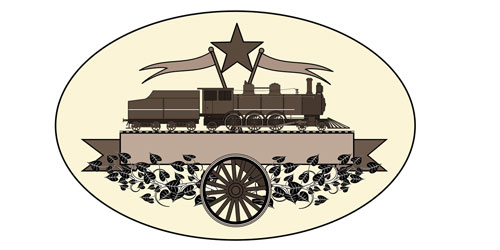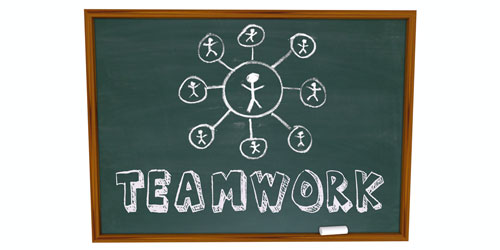《论语诠解英文版》——Chapter XVI"季氏" (Jishi)
[16- 1] 季氏将伐颜臾。冉有、季路见千孔子曰 : "季氏将有事千颠臾。"孔子曰: “求!无乃尔是过与?夫颜臾,昔者先王以为东蒙主, 且在邦域之中矣,是社稷之臣也。何以伐为?”冉有曰: “夫子欲之,吾二臣者皆不欲也。“孔子曰: “求!周任有言曰: '陈力就列,不能者止。'危而不持,颠而不扶,则将焉用彼相矣?且尔言过矣,虎咒出千押,龟玉毁千犊中,是谁之过与?” 冉有曰: “今夫颜臾,固而近千费。今不取,后世必为子孙忧。" 孔子曰: “求!君子疾夫舍曰欲之而必为之辞。丘也闻有国有家者, 不患寡而患不均,不患贫而患不安。盖均无贫,和无寡,安无倾。夫如是, 故远人不服,则修文德以来之。既来之,则安之。今由与求也,相夫子, 远人不服,而不能来也;邦分崩离析,而不能守也;而谋动干戈千邦内。 吾恐季孙之忧,不在额臾,而在萧墙之内也。"
16.1 Jishi was planning to attack Zhuanyu. Ran You and Zilu went to see the Master and said, "Jishi is going to invade Zhuanyu."
The Master said, "Ran Qiu, it is your fault, is it not? The former kings had since ancient times appointed Zhuanyu to host sacrifices to the Eastern Meng Mountain. Furthermore, the land of Zhuanyu is now within the State of Lu as its tributary. Why should it be attacked?" Ran You said, "It is not us who wish to attack it, but our lord, Jishi." The Master said to Ran Qiu, "Zhou Ren once stated,'Fit one's ability, as much as possible, for his position. If not, one should retire from it.'What's the use of a minister if he does not support his lord when he is in crisis or if he does not help raise him up when his lord falls down? What you just said is untrue. Whose fault is it when a tiger or a rhinoceros escapes from its cage or when a tortoise or a piece of jade is broken inside the box?"
Ran You said, "At present Zhuanyu is heavily walled and guarded and it is also close to Bi Yi. If the land is not seized now, it will certainly become a problem for the descendants of the lord." The Master said, "Ran Qiu, the noble man hates those who refuse to say what they really desire but would try to find an excuse to defend their behavior. I have heard that what princes and ministers are concerned with most is not the lack of wealth, but rather inequality in the distribution of wealth; what they are concerned with most is not the small size of its population, but rather social instability. Perhaps when there is equality in the distribution of wealth, there would be no pov erty. When people live in harmony, there would be no fear of under-popula tion. When there is social stability, there would be no threat of subversion. If all this can be accomplished, yet people from the distant quarters still do not submit themselves, you can attract them by instilling in them benevolence, propriety, righteousness, and music. When they are so attracted, have them settle down happily and be contented. Now, you two, Zhong You and Ran Qiu, are serving Jishi, but you fail to attract to your lord people from distant quarters. Your state is falling apart and suffering a moral lapse. Instead of helping your lord preserve your country, you are assisting him in military mobilization. I am afraid that Jishi's woe is not with Zhuanyu but rather within his own court."
[Com ment] " 季氏 jl shl" refers to '季康子 jl kang zT" and "颜臾 zhua n yu" refers to a tributary to the State of Lu. " 有 事 yo u shl" translates as "to mobilize a military force for an attack." " 主 zhu" connotes "to preside over a sacrificial ceremony" while "夫子 fCi zT" means "季氏 jl shL"
[Reading] Confucius'political doctrine is in line with his moral teachings. Similar to the Buddhist theory that the world is an extension of the mind, Confucius was convinced that a leader's own inner moral cultivation is the ground on which his ruling principle is based. As a leader instills his people with benevolence, propriety, and righteousness, his ruling is endowed with justice and stability. In so doing, he would be able to attract attention and admiration from the leaders of neighboring states who would then come to learn from him. Only a state of inner turmoil and instability would make one's own country a military target for neighboring kingdoms.
[16- 2] 孔子曰: “天下有道,则礼乐征伐自天子出;天下无道, 则礼乐征伐自诸侯出。自诸侯出,盖十世希不失矣;自大夫出,五世 希不失矣; 陪臣执国命, 三世希不失矣。天下有道, 则政不在大夫。天下有道,则庶人不议。"
16.2 The Master said, "When good government reigns, the regulation of ritual, music and military mobilization are all initiated by the Son of Heav en. When bad government reigns, the regulation of ritual, music and mili tary mobilization are all initiated by princes. In this case, it is very rare that power is maintained beyond ten generations. If the regulation of ritual, mu sic and military mobilization are all initiated by ministers, it is very rare that power be maintained beyond five generations. If the government is under the control of retainer governors, it is very rare that power is maintained beyond three generations. If good government reigns, power would not be lost into the hands of ministers. Likewise, if good government reigns, common folks will not be fond of political discussions among themselves."
[Comment] "希 xi'' is used interchangeably with " 稀 xi'' to mean "rare." "陪臣 p创 c h的 " describes "retainer governors serving a minister in his resi dence."
[Reading] The highlight of this passage is the delamination of political pow er ranging from "the Son of Heaven" to the retainer governors. The Son of Heaven, usually referring to the emperor, is the key to the prosperity of the entire political arena. In Confucianism, the concept of the Son of Heaven is much more intricate than a simple political idea. However, emperors of each dynasty in later times all designated themselves as "the Son of Heaven" to justify their supreme political position. For Confucius, not all emperors were "the Sons of Heaven." Furthermore, "the Son of Heaven" is defined by its moral virtuosity and perspicacity rather than by blood heredity. Those who can be tern 记 d "the Sons of Heaven" must be those who can carry on the mission of Heaven, or the task of the Way, the embodiment of the nurturing power of Nature. Of course, when the true "Son of Heaven" was missing, political power was given over to princes, ministers, or even retainer gover nors. This political deterioration would generate social turmoil and military aggression.
[16- 3] 孔子曰: "禄之去公室五世矣,政逮千大夫四世矣,故夫三桓之子孙微矣。"
16.3 The Master said, "It has been five generations since the Grand Ducal Family of Lu lost its power to decide on emoluments, official ranking, reward and punishment. It has been four generations since the government was lost into the hands of the ministers. As such, the descendants of the three Huan families are on the decline."
[Com ment] "书 lu" describes "power to decide on emoluments, official ranking, reward and punishment."
[Reading] This passage, as a follow-up remark to the previous one, provides a concrete example of the aristocratic families of Lu whose political power was in decline on account of their loss of "the Son of Heaven."
[16- 4] 孔子曰:" 益者三友,损者三友。友直,友谅,友多闻, 益矣。友便辟,友善柔,友便佞,损矣。"
16.4 The Master said, "There are three types of friends that are beneficial, and three that are harmful. Befriending the righteous, the trustworthy, and the learned will benefit you. Befriending the devious, the specious, and the sycophantic will be harmful."
[Comment] "谅 lia ng" means " trustworthy." " 辟 pl" is used interchange ably with " 俏 辛 pl" to mean "easy to slide into devious ways" or "adept at flattery." " 善 柔 s ha n r6u" suggests "adept at pretending in order to cheat people" while " 便 佞 pio n nlng" describes a person who is "adept at using adulatory words."
[Reading] Friends are one of Confucian Five Cardinals, namely, Emperor/ Subject, Father/Son, Husband/Wife, Siblings, and Friends. The principles of selecting friends that Confucius proposed thousands of years ago have cast an overarching influence on Chinese people's lives. Principally, they go against the common human nature dictating the egoistic preference: flattery. Few people can really resist others'obsequiousness. But the most beneficial friends aim to rectify one's personality flaws by pointing them out to one's face. Only by humbling oneself and accepting others'criticism can one really obtain the character-shaping opportunity of growth and spiritual enhancement.
[16- 5] 孔子曰: " 益者三乐, 损者三乐。乐节礼乐, 乐道人之善, 乐多贤友,益矣。乐骄乐,乐佚游,乐晏乐,损矣。"
16.5 The Master said, "There are three types of enjoyment that are benefi cial, and three that are harmful. Enjoying pleasure in self-cultivation through ritual and music, in speaking of the virtue and benevolence of others, and in having many friends of true virtue and ethical values will benefit you. Enjoying pleasure in overindulgence, in idleness and excursion, and in over drinking will be harmful."
[Com ment] "节礼乐 jie IT yue" means "to use ritual and music to cultivate oneself so as to obtain harmony." " 骄 乐 jia o le" implies "to take pleasure from extravagance" while " 佚 y1" is used interchangeably with " 逸 y1" to mean "indulging in idleness and excursion." " 晏 乐 yo n le" implies "to de rive pleasure from drinking."
[Reading] For Aristotle, "happiness" as the fundamental meaning of eth ics should be treated as the aim of life. But happiness for Aristotle is the flourishing of one's life when one is good at being a human being. This Aristotelian definition of happiness is aligned with Confucian comments on enjoyment. If one's enjoyment is derived from something which enhances one's overall flourishing, it is construed as good enjoyment. But when one's enjoyment is derived from something detrimental to one's overall flourish ing, Confucius construed it as bad enjoyment.
[16- 6] 孔子曰: " 侍千君子有三思:言 未及之而言谓之躁,言 及之而不言谓之隐,未见颜色而言谓之普。"
16.6 The Master said, "Those who are in service of a ruler of virtue should try to avoid three common errors: Speaking when it is not their turn to speak, which is imprudence, remaining silent when it is their turn to speak, which is concealment, and speaking without being sensitive to the countenance of their superior, which is blindness."
[Comment] "惩 qia n" means "error." "躁 zoo " connotes "rashness" and '替gu" refers to "a blind man."
[Reading] This Confucian precept maintains its validity even in modern times. But the concept of a ruler could be replaced by that of an employer, a business partner, a friend, or even a spouse. One can rarely achieve the opti mal effectiveness of one's words when one speaks on an inappropriate occa sion. The judgment of when one's occasion is "appropriate" requires hard earned wisdom and perspicacity. There is no "scientific" rule to coach one for this moral virtuosity. However, one can accrue this by life experiences, constant self-reflection, and having a good moral mentor.
[16- 7] 孔子曰: “ 君子有三戒: 少之时, 血气未定, 戒之在色; 及其壮也,血气方刚,戒之在斗;及其老也,血气既衰,戒之在得。"
16.7 The Master said, "There are three things the noble man of virtue should guard against. As a young man whose physical condition is not yet stable, he should guard against lust. As an adult whose physical condition ripens, he should guard against physical confrontation. As an old man whose physical condition weakens, he should guard against avarice."
[Reading] Like the precept for friends, this passage of precept has equally had an everlasting impact upon Chinese people. It dictates what one should guard oneself against at the three stages of one's life: youth, adulthood, and old age. Each stage marks a difference in the condition of one's life energy: initial eruption of one's vital life energy, the peak of one's vital life energy, and the decline of one's life energy. This difference gives rise to three dif ferent predominant character trends, which could invite troubles: sexuality, egoism, and insecurity.
[16- 8] 孔子曰: “ 君子有三畏: 畏天命, 畏大人 , 畏圣人之言。小人不知天命而不畏也,押大人,侮圣人之言。"
16.8 The Master said, "There are three things the nobleman of virtue should hold in awe and reverence. He should be in awe and reverence of the Man date of Heaven. He should be in awe and reverence of men of greatness. He should be in awe and reverence of the adages of the sages. The mean man does not know the Mandate of Heaven, therefore he is not in awe and rever ence of men of greatness nor the adages of the sages."
[Reading] Confucius endeavored to differentiate "君子J unz i" (men of true virtue) and "小人 xiaoren" (mean men or men without virtue) in this pas-
沁4 sage. The distinguishing factor is ignorance. Because of ignorance, the mean man does not show his respect for and his humbleness in front of the Man date of Heaven and those who are carriers and embodiments of the Mandate of Heaven. By pointing out the main difference between" 君子Junzi"and" 小人xiaoren", Confucius displayed his sympathy and pity for the latter, rather than severe condemnation.
[16- 9] 孔子曰: “生而知之者上也;学而知之者次也;困而学之, 又其次也;困而不学,民斯为下矣。"
16.9 The Master said, "Those who are born with knowledge are the best. Those who learn and then acquire knowledge are the next. Those who, en countering problems, learn and obtain knowledge are tertiary. Those who, encountering problems, still refuse to learn are of the lowest order."
[Reading] Confucius pointed out the gradation of one's intelligence with four categories. The highest level, genius, is a rarity. People of the second highest level of intelligence probably occupy society's upper class. People of the third level probably are predominant in society. The last category is also a rarity. In a modern society, they are probably those who government should take care of.
[16- 10] 孔子曰:“ 君子有九思: 视思明, 听思聪, 色思温,貌思恭, 言思忠,事思敬,疑思问,忿思难,见得思义。"
16.10 The Master said, "The nobleman of virtue has nine important considerations in mind. In seeing he needs to make sure that he sees clearly. In listening, he needs to make sure that he hears comprehensively. In interact ing with others, he needs to make sure that his countenance is gentle and that he appears to be humble and modest. In speaking, he needs to make sure that he is sincere and truthful. In doing business, he needs to make sure that he is cautious and deferential. When in doubt, he needs to make sure that he checks with others appropriately and with courtesy. When upset, he needs to make sure whether his anger may incur potential problems. When gaining something, he needs to make sure that it meets the standards of the right eous."
[Reading] These nine precepts lay the foundation for one's daily self-reflections. Confucianism places great emphasis on self-cultivation through which one can transform oneself from a human animal into an authentic human being.
[16- 11] 孔子曰: “见善如不及,见不善如探汤。吾见其人矣,吾闻其语矣。隐居以求其志,行义以达其道。吾闻其语矣,未见其人也。"
16.11 The Master said, "Viewing righteous deeds, I wish to catch it but feel like I am unable to reach it. Seeing bad deeds, I feel like putting my hands into boiling water to try and avoid it. I have seen such men. I have also heard such words.'Retreating and living like a hermit in order to preserve one's aspiration and act out one's principles in accordance with the righteous.'I have heard such words but have never seen such men."
[Com ment] "探汤 ta n tang" means "to put hands into boiling water."
[Reading] Confucius compared two kinds of virtuous deeds and observed that he only witnessed the first kind. The comparison reveals the degree of attainability of these two kinds of virtuous deeds. The first is relatively easy to perform because the commonsensical "good" is very accessible to the commoners. For example, killing is a crime, but helping others is moral deed. However, the second kind suggests a strong sense of forbearance. When the circumstances occur in such a way that one cannot fulfill one's mission ofrighteousness, one can sink into oblivion. But when one's oppor tunity comes, he will set his heart on achieving his purpose and really make it.
[16- 12] 齐景公有马千驱, 死之日,民 无德而称焉。伯夷 、叔齐饿死千首阳之下,民到千今称之。其斯之谓与?
16.12 Duke Jing of Qi had in his possession four thousand horses. However, when he died, the people found there was nothing for which they could praise him. Bo Yi and Shu Qi both died of starvation at the foot of Shouyang Mountain, yet the people praised them until the present day. This fact speaks for itself, doesn't it?"
[Comment] "千驸 qia n sl" means "four thousand horses."
[Reading] Confucius pointed out that the distinguishing factor of leaving a mark on the world is not wealth, but virtue.
[16- 13] 陈亢问千伯鱼曰:“ 子亦有异闻乎? ” 对曰:“ 未也。尝独立,
鲤趋而过庭。曰: '学《诗》乎?'对曰: '未也。' `不学《诗》, 无以言。'鲤退而学《诗》。他日又独立,鲤趋而过庭。曰:'学《礼》乎?' 对曰: `未 也 。'`不 学《礼》 ,无 以 立。'鲤退而学《礼》。闻斯二者。" 陈亢退而喜曰: ”问 一 得 三。闻《诗》,闻《 礼》,又 闻 君 子 之 远 其 子 也 。”
16.13 Chen Gang asked Boyu, "Did you get special instructions from your father?" Boyu replied, "No. Once he was alone in the hall and when I was quickly passing him, he asked,'Have you learned the Classic of Odes?'I told him'Not yet.'He said,'If you do not learn the Classic of Odes, you will not be able to converse appropriately.'So I came back and studied it. On another day, he was again alone in the hall. As I was quickly passing him, he said,'Have you learned the Record of Rites?'I told him'Not yet.'He said, 'If you do not learn the Record of Rites, you will not be able to understand how to establish yourself.'So I came back and studied it. These are the only two things I have heard from him." Chen Gang left and said delightedly, "I only asked one question but harvested three things. I have heard the Classic。if Odes, the Record of Rites, and above all, I have learned that the nobleman is impartial towards his own son."
[Com ment] "陈亢 c he n gang" means "陈子禽 c h却 zT qf n." " 伯 鱼 b6 yu" was the son of Confucius, that is, "子L鱼里 k6ng IT," whose courtesy name was "伯鱼 b6 yu" and who died before Confucius. "异闻 yl w的 " implies "content that is different from that which is taught to other students." "远yuan" means "impartial."
[Reading] Contrary to the modem pedagogical trend, Confucius constantly gave precedence to books about virtuous conduct over books about techni cal knowledge. But modem schools rarely emphasize the value of becom ing a moral human being. Materialistic values such as having nice houses, jobs, and cars, as well as fame and high social status, have gradually become predominant in modem society. Higher education all over the world seems to veer its core aim toward these social values.
[16- 14] 邦君之妻,君 称之曰夫人 , 夫人自称曰小童; 邦人称之曰君夫人,称诸异邦曰寡小君;异邦人称之亦曰君夫人。
16.14 The prince calls his wife Furen. The wife calls herself Xiaotong. The people of the state call her Junfuren. To the people of other states, they call her Guaxiaojun, whereas people of the other states would call her Junfuren.
[Reading] This passage deals with the social hierarchy set up in the Zhou Dynasty. Confucius very much admired the hierarchical social system passed down to him from the Zhou Dynasty because society would become chaotic if not imposed with a sort of structure. But the social structure that Confucius advocated is not based upon discrimination but upon mutual respect and reciprocity. In another passage, Confucius emphasized that the righteousness of the hierarchy should be grounded in mutuality: "When the emperor acts like an emperor-protecting his people, the subject acts like a subject-expressing his loyalty. When a father acts like a father-loving his son, the son acts like a son-showing filial piety to his father." "君君臣臣, 父父子子 jun jun c h的 c h的 ,f u fu zT zT." This social hierarchy is condi tional rather than dogmatic.












